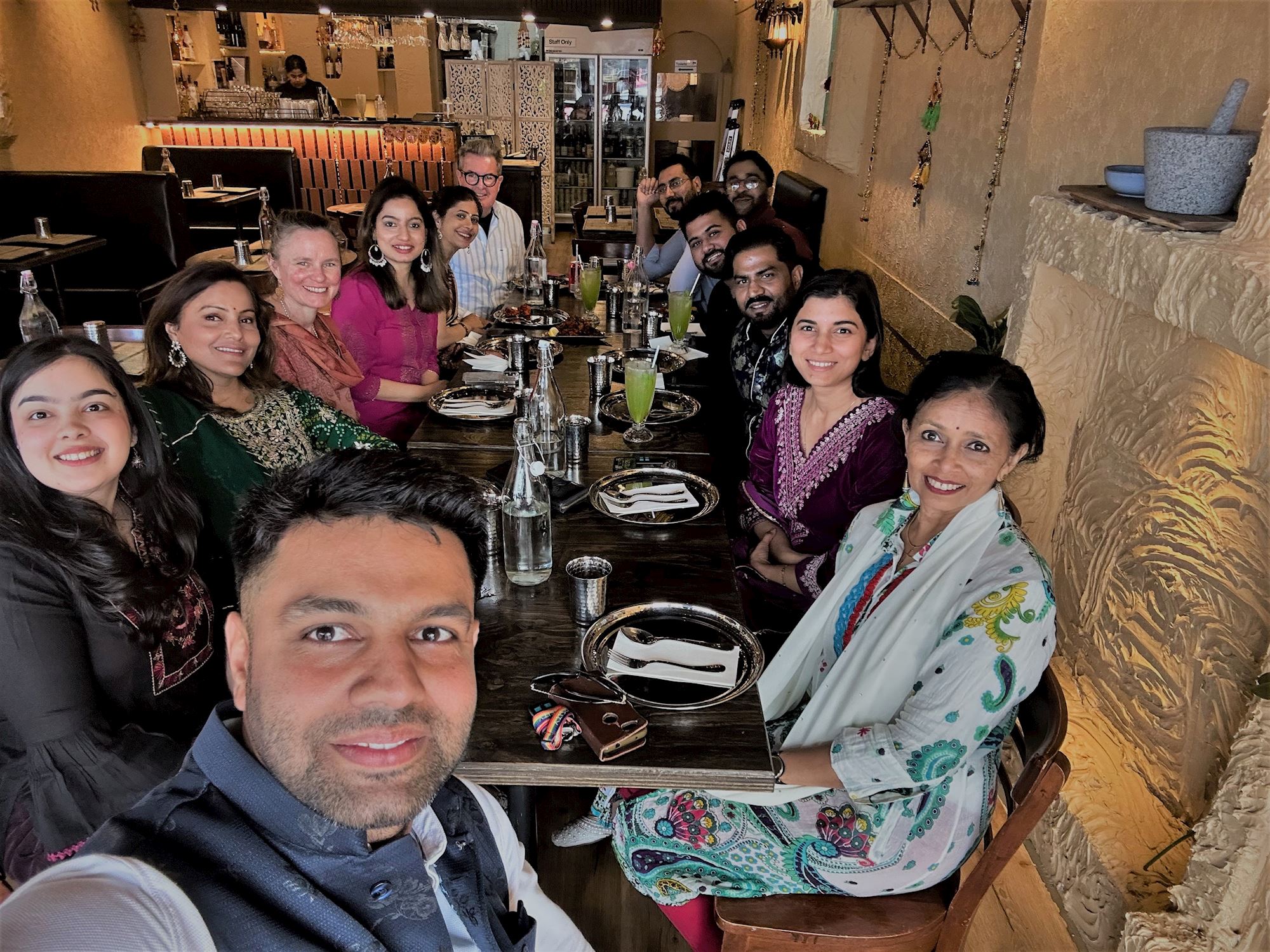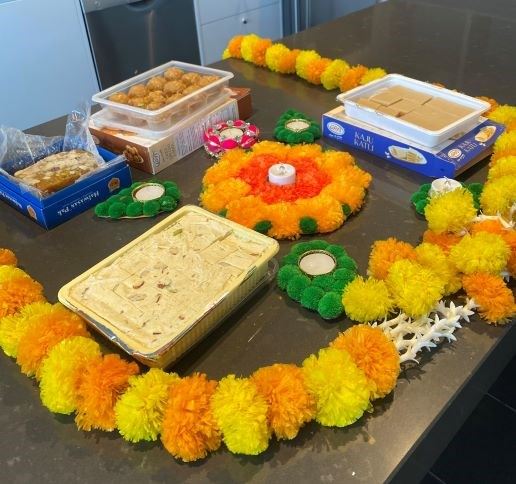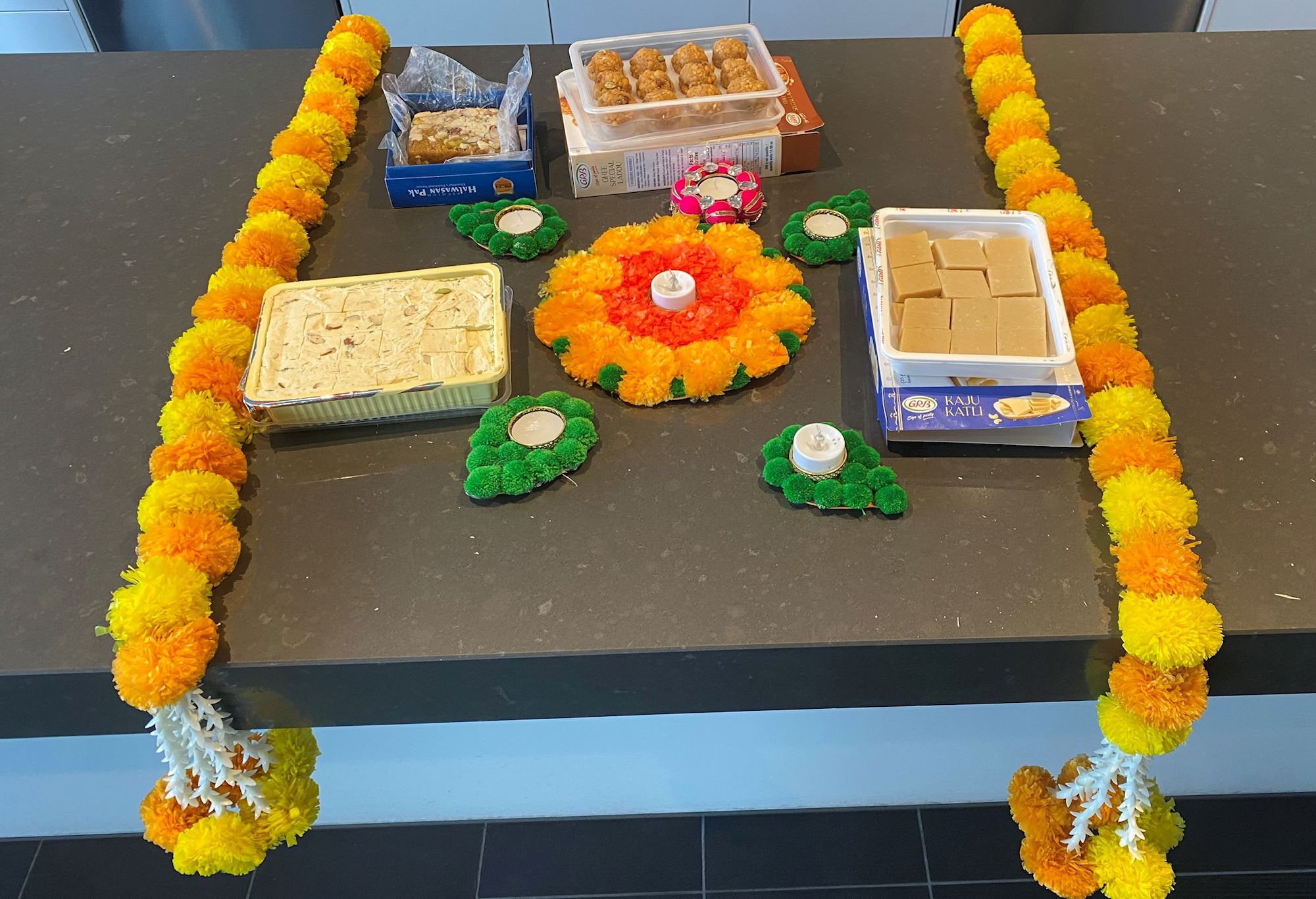Ground Floor, 1919 Malvern Road,
Malvern East,
VIC 3145 Australia.
Embracing the festival's spirit by donning traditional attire, enjoying a delightful Indian lunch, and sharing sweets within the Melbourne office. With origins in India, Diwali is a well-known and highly regarded religious festival around the world.
We spoke with Meena Bora about Diwali and its celebrations. Diwali, the Festival of Lights, is a major festival in India celebrated by millions. Meena highlighted that Diwali is not just about lights and sweets; it's a time for family gatherings and spreading joy in the community.
Here are some interesting insights to the answers from the Q & A session we conducted with Meena. Plus, we have a special announcement about next year’s festivities.


Q: Can you tell us a bit about Diwali and its significance?
Diwali also known as Deepavali or Festival of Lights, is one of the most important festivals celebrated in India (as well as surrounding nations and the diaspora). It forms part of the Hindu, Jain, Sikh, and Newar Buddhist traditions. It typically signifies the spiritual victory of light over darkness, good over evil, and knowledge over ignorance.
The festival usually lasts for five days and occurs in October or November, depending on the lunisolar calendar.
Diwali is connected to various religious events and deities such as the return of Lord Rama to his kingdom in Ayodhya with his wife Sita and his brother Lakshmana after 14 years of exile and victory over the demon king Ravana.
The celebration is also widely associated with Lakshmi, the deity of wealth and prosperity, and Ganesha, the deity of wisdom and the remover of obstacles.
Q: How is Diwali celebrated?
Traditionally, people celebrate Diwali by decorating their homes with oil lamps (diyas), lights, candles, exchanging gifts and sweets, and enjoying festive meals with family and friends.
Diwali is also marked with fireworks as well as the decoration of floors with rangoli designs. Food is a major focus with families partaking in feasts and sharing ‘mithai.
Q: How has the way Diwali is celebrated changed over the years?
Originally a festival celebrated predominantly in India, Diwali is now observed in many countries around the world. As Diwali spreads globally, some regions have adapted their own local customs into the celebration, adding different flavors to the way the festival is observed.
The festival has seen an increase in commercialisation, with retailers offering extensive discounts and promotions in the lead-up to Diwali and as such has turned the event into a major shopping event also.
There is a growing emphasis on eco-friendly celebrations, with many people opting for green alternatives to traditional practices, such as using clay diyas instead of electric lights. And to minimise the polluting effect of the traditional fireworks, many people use eco-friendly fireworks, or forgo them entirely.
Q: What does Diwali mean to you?
Diwali holds a special meaning for me as it is an occasion where my family and friends come together. The vibrant decorations, delicious food, and exchange of gifts are an important part of the traditions.
Diwali is a cherished time spent at home with family and loved ones. Cooking feasts and sweets together is a highlight, as we share these special treats with each other. It’s also a wonderful opportunity to reach out to extended family and friends, exchanging gifts. The days leading up to the celebrations are filled with gatherings, filled with laughter and great food.
Diwali also means connecting with my relatives in India through greeting cards and phone calls, bridging the distance that separates us. In today's world, we also connect virtually, sharing photos, videos, and warm wishes on social media. This has become particularly important as we cannot be with family in person, allowing us to celebrate together in spirit, no matter where we are.
Q: What is your favorite part of the Diwali celebration?
Lighting diyas and sparklers with family. This creates a joyful atmosphere and sense of togetherness among family and friends. My kids especially love the sparklers! Overall, the blend of lights and laughter makes Diwali truly special.
Q: What are some of the traditional foods and sweets associated with Diwali?
Diwali is celebrated with a variety of traditional foods and sweets. Some popular options include sweets known as “mithais” sunch as Ladoos, Barfi, Gulab Jamun and savory snacks and other delicacies. These foods and sweets are an integral part of Diwali celebrations, and families often prepare them to share with loved ones and guests.
Q: How do you usually celebrate Diwali with your family?
My family celebrates Diwali by holding gatherings with our extended family and friends.
We start with decorating our homes with rangoli and lights and in the evening we light diyas, adding to the festive atmosphere. I relish the joy of being with loved ones.

Q: How was Diwali celebrated at work?
To celebrate, some members of the Melbourne office spent their lunch break at a nearby Indian restaurant, and then came to the office to share some traditional sweets in the kitchen, which we adorned with Diwali decorations. We came dressed in traditional clothing for the occasion.
It was very informal. This celebration came about because a few of us came together and thought it would be a nice idea to celebrate Diwali at work.
A few of those colleagues who organised and participated in these celebrations are Peter Wallbridge, Manu Das, Jyotee Dahiya, Vansh Shah, Amber Boughen, Pritha Pareek, Kanika Manchanda, Ravi Tomar, Renuka Jesudhason, Sahil Arya, Anurag Goel, Zohaib Ali.
Q: How important to you is being able to celebrate Diwali with your colleagues?
It represents the importance of coming together with colleagues, sharing joy, and fostering a sense of community. It's also a way to embrace inclusivity and unity as we welcome everyone to join in the festivities.
Q: How many other staff members celebrate Diwali?
There are about 20 people in Melbourne office who celebrate. In Malaysia, it is a public holiday, so KL-based staff who celebrate there are able to take the day to do so with their family and friends.
Because Diwali can fall on a normal work day in Australia, it is great that we are empowered to participate in celebrations with our colleagues during this time.
Q: What message would you like to share with colleagues who may not be familiar with Diwali?
Diwali is a celebration that promotes unity, hope, spiritual renewal, community bonding and togetherness.